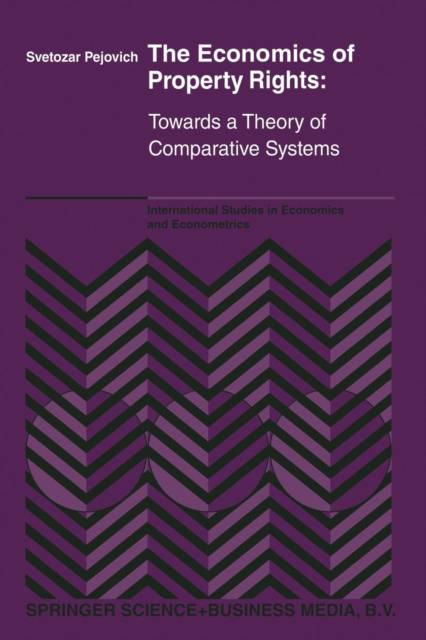
- Afhalen na 1 uur in een winkel met voorraad
- Gratis thuislevering in België vanaf € 30
- Ruim aanbod met 7 miljoen producten
- Afhalen na 1 uur in een winkel met voorraad
- Gratis thuislevering in België vanaf € 30
- Ruim aanbod met 7 miljoen producten
Zoeken
€ 118,79
+ 237 punten
Omschrijving
To understand recent developments in Eastern Europe requires a method of analysis that is capable of internalizing into a theoretical framework (i) the logical premises deduced from the costs of transactions and incentive structures generated by various institutions and (ii) the evidence for refutable implications of those premises. The economics of property rights is such a theory. It expands the scope of the ability of economic analysis to explain a wide range of institutional structures and provides empirical corroboration of its logical implications. The economics of property rights is, then, an effective scholarly instrument that offers more significant understanding of the three current issues in the area of comparative economic studies: (i) evaluating the performance of alternative institutional arrangements, (ii) explaining the failure of socialist institutions in Eastern Europe, and (iii) identifying the costs (political as well as economic) of institutional reforms in that part of the world. In that sense, the book is both timely and relevant. In the late 1980s East Europeans crossed the threshold of fear and forced their leaders to abandon Marxism. With that theory of history dead and buried, the cost of current sacrifices in the pursuit of socialism has risen relative to the present value of its expected future benefits.
Specificaties
Betrokkenen
- Auteur(s):
- Uitgeverij:
Inhoud
- Aantal bladzijden:
- 204
- Taal:
- Engels
- Reeks:
- Reeksnummer:
- nr. 22
Eigenschappen
- Productcode (EAN):
- 9789401740890
- Verschijningsdatum:
- 13/11/2013
- Uitvoering:
- Paperback
- Formaat:
- Trade paperback (VS)
- Afmetingen:
- 156 mm x 234 mm
- Gewicht:
- 312 g

Alleen bij Standaard Boekhandel
+ 237 punten op je klantenkaart van Standaard Boekhandel
Beoordelingen
We publiceren alleen reviews die voldoen aan de voorwaarden voor reviews. Bekijk onze voorwaarden voor reviews.








